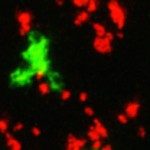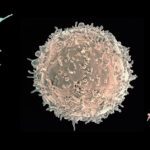Présentation
To fight cancer or infections, a variety of immune cells are engaged in a tremendously complex, yet highly coordinated sequence of cellular processes. This coordination is enforced by distinct mechanisms of cellular communication allowing immune cells i) to sense information from their environment and from other cells and ii) to respond to this information by altering their behavior, gaining functional properties or propagating new information in the tissue. Immune cells exchange information with each other and with their environment through two major modes: i) the formation of cell-cell interactions and ii) the production of diffusible mediators such as cytokines and chemokines. Cell-cell interactions certainly contribute to ensure that the information is passed specifically to an individual cell at a given time and in a given location. In addition, immune cells communicate at greater distances through the activity of cytokines and chemokines. These mediators may be present in large territories of the microenvironment, potentially acting on many cells simultaneously. The last decades have witnessed immunologists elucidate an impressive number of mechanisms involved in the initiation and resolution of immune responses. However, the integration of all these mechanisms into the in vivo context remains extraordinarily challenging. Two outstanding scientific questions will constitute the basis for the present reserach program.
How do immune cells integrate and respond to cellular contacts in lymphoid organs and in tumors?
How does the immunological information propagate in tissues through the activity of cytokines and chemokines?


